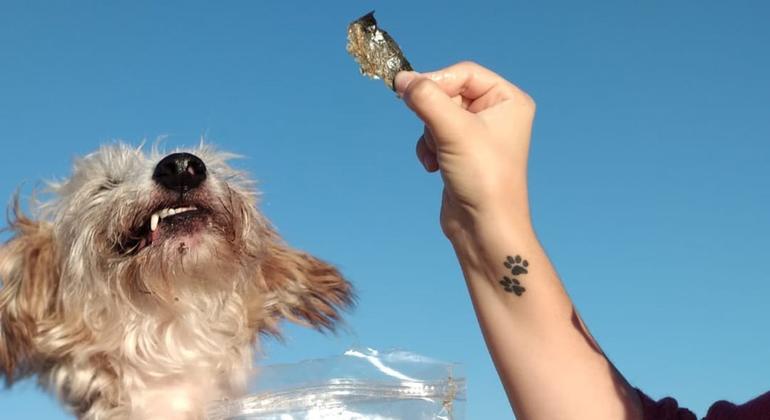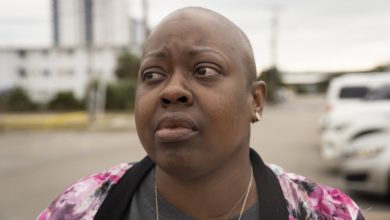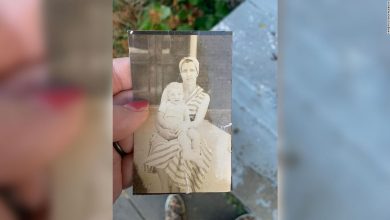Zero waste: Portuguese business turns leftover fish into dog food |

UN News recently visited one such project, in the Portuguese capital, Lisbon, where United Nations Ocean Conferencewill take place, at the end of June.
Sancho Pancho was created by Daria Demidenko, a Russian who moved to Portugal in 2015. Her ingenious business idea involves turning the leftovers of fresh fish into dog food.
Demidenko, founded her business by partnering with a Japanese restaurant and several fish markets in the Portuguese capital. She is using parts that are not on the plate and cannot be used to produce premium sushi and sashimi dishes.
Fight food waste
Every day, kilograms of fish heads, bones and skins are thrown in the trash, but Demidenko has revolutionized her approach to such food waste by partnering with Sekai Sushi Bar, a Japanese restaurant in the heart of Santos .
Every day, the restaurant receives about 10 kg of salmon, tuna and white fish.
Sushi chef Sunil Basnet quickly cleans and prepares fish, including dishes like a three-kilogram tuna caught just off the coast of Portugal.
Sekai’s owner, Edilson Neves, explained to UN News that, on average, 30% of fish cannot be consumed at the restaurant.
“The spine, the tail, the edges, the edges, the part that connects to the stomach, some parts of the fish are tougher, have too much flesh and skin, we don’t use them anymore. This 30 to 40% will be wasted, we will use it again in the end Sancho Pancho“.
Healthy snacks
Demidenko’s business name, a reference to the character Sancho Panza, in Miguel de Cervantes’ classic novel, Dom Quixoteand also a personal tribute to one of her dogs, named Pancho.
She told UN News, about some special ingredients and dishes, she found, using leftovers.
“These crackers are made with this white fish, which we cook first, then crush, so the bones have a much smoother texture,” she tells us, pointing to one of the dishes. for dogs.
“We crush it, mix it with flour and make cookies. But there are also other types of waste, such as whitefish or salmon skin, that can make you dehydrated. This snack is put in the machine, left for 20 hours at 70°C and then drier, crisper, and we cut it into pieces and form pieces as small as salmon skin crumbs.”
Scandinavian countries take the lead
In addition to picking up leftovers at the Sekai restaurant, Daria has partnerships with other restaurants and fish markets in Lisbon.
She collects about 25 kg of leftover fish every week. Her initiative has received praise from the senior fisheries expert at the Food and Agriculture Organization of the United Nations (FAO), based in Rome, Márcio Castro de Souza.
“This initiative is very exciting and we have actually seen, not only on an industrial scale, but small examples of how to reduce fish waste.
“There are already a number of salmon production industries in Scandinavian countries that have reached the point of using 100% of the total fish. They don’t miss any. They make fillets, use their eyes to make fertilizer or make essential oils, so there’s been an entire production focused on zero waste,” he explains.
Other initiatives around the world include using fish skin to make wearable products; using fish scales in the manufacture of lipstick; and squid ink to color dishes like pasta.
Consumer perception
Salmon skin snacks are rich in omega 3 fish oil, which is useful for keeping the skin and coat of pets like dogs and cats healthy.
In addition to reusing leftover fish, the Daria brand also makes biscuits from leftover dehydrated rabbit and pork.
The creator of Sancho Pancho said she was trying to raise awareness among customers about the problems caused by food waste.
“Several customers have told us that they are learning from us, and that they are currently going to fish markets and butchers in Portugal and also bringing some of the leftovers home themselves. They don’t make snacks for sale, but they do try to make some food for their dogs, cats, or for themselves. “
Halving the world’s food waste by 2030 is one of the things of the United Nations’ Sustainable development goals.
Target 14 also related to the sustainable management of marine life. Save the ocean and protect the future is the motto of United Nations Ocean Conferencetook place in the Portuguese capital from June 27 to July 1.







